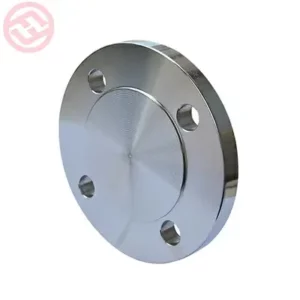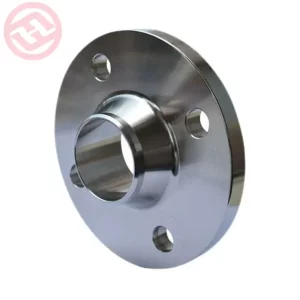Flange
Flanges are primarily used to connect pumps, pipes, valves, and other equipment to create a functional pipework system. Flanges can be either threaded or welded, and the connection between two flanges is made by bolting them together with gaskets, providing a seal that allows easy access to the piping system.
Main Types Of Pipe Flanges Below:
The choice of material used for pipe flanges depends on various factors such as the piping material, application requirements, flow pressure, operating temperature, and environmental corrosion. There are several materials available for manufacturing pipe flanges, including:
Carbon steel is a type of steel alloy that typically contains carbon. The strength and hardness of carbon steel increase with higher carbon content, while the melting point and ductility decrease. Carbon steel is widely used and considered to be the most common material grade.
Stainless steel is a steel alloy that contains more than 10% chromium. The addition of chromium provides stainless steel with significantly higher resistance to corrosion compared to carbon steel, which is prone to rusting upon exposure to air and moisture.
Cast Irons Flange
Cast iron is produced by alloying iron with silicon, carbon, and various other alloys. The addition of silicon causes carbon to separate from the iron and form a black graphite layer on the surface of the metal. Cast iron is known for its good castability, machinability, and fluidity during casting processes.
Aluminum Flange
This metal is characterized by its low density, ductility, and malleability, and has moderate strength. It offers superior corrosion resistance when compared to other common alloys and carbon steel. This metal is particularly useful in flange construction applications that require low weight and strength.
Brass Flange
This is an alloy composed of zinc and copper, which may also include other elements such as tin or lead. It is known for its excellent conductivity, as well as its cold and high-temperature ductility. Additionally, it boasts good strength properties.
High Pressure Flanges Apply To Specialized Site
High-pressure flanges are typically used in industries such as oil and gas, chemical processing, power generation, and refining, where the piping systems are subjected to high pressures. These flanges are designed to withstand extreme pressure, temperature, and vibration, ensuring the safe and reliable operation of the piping system.
One of the critical factors in designing high-pressure flanges is the choice of material. The material must be able to withstand high-pressure conditions and must also be resistant to corrosion, erosion, and fatigue. Common materials used to manufacture high-pressure flanges include carbon steel, stainless steel, and alloy steel.



